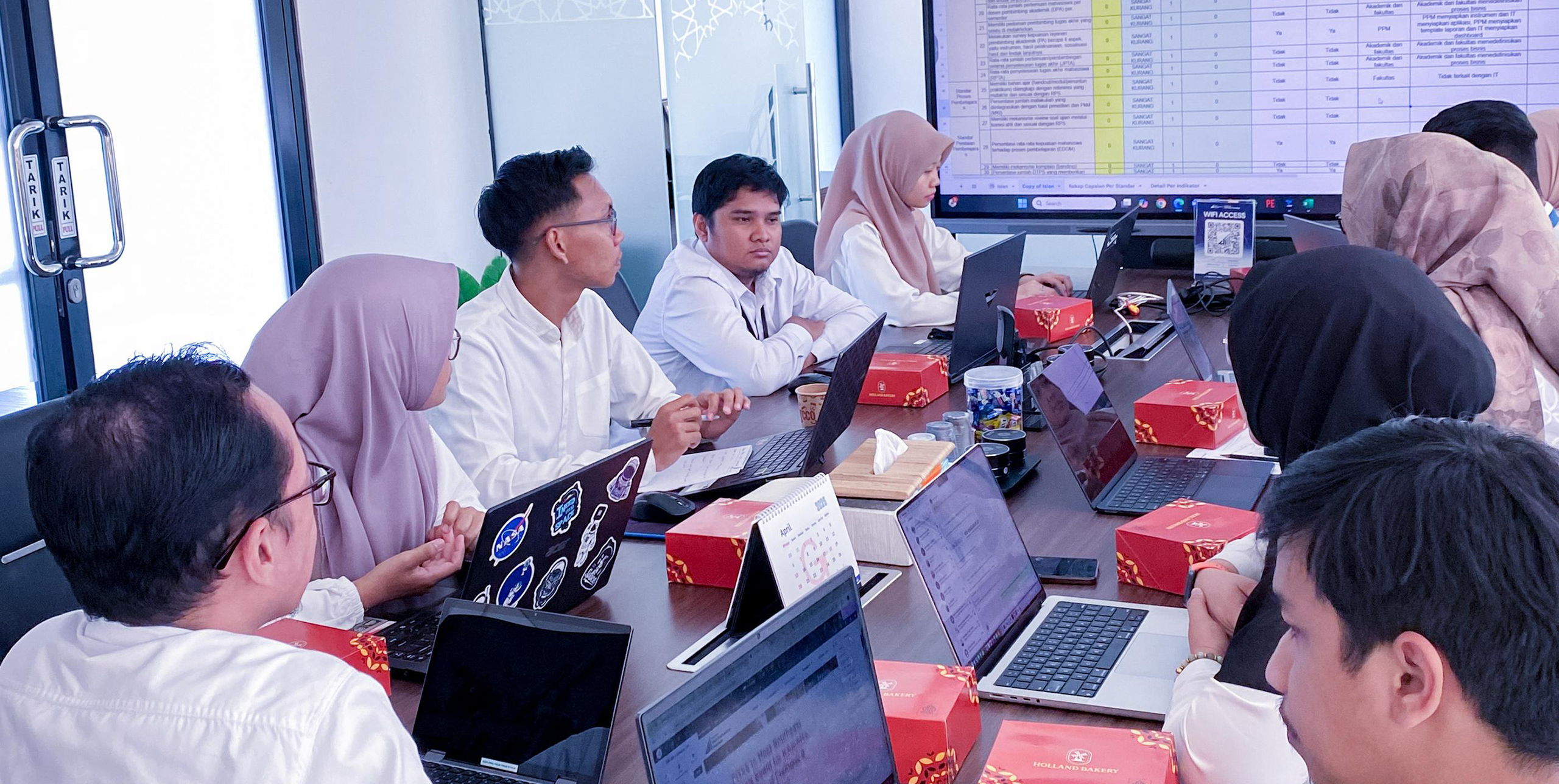April, 28 2025 | Contributor: Riski Maulana | Editor: Regiani Yunistika

Universitas Islam Internasional Indonesia (UIII) consistently demonstrates its commitment to strengthening the Internal Quality Assurance System (SPMI) by organizing a specific meeting to help prepare the upcoming agenda of Internal Quality Audit Year 2025, scheduled in July, to be supported with an integrated system. This initiative is among the Center for Quality Assurance (CQA)’s crucial programs, considering that it is aligned with the university’s strategic agenda of digital transformation toward integrated and data-driven academic governance.
The discussion, held in the Center of Information Technology (PTI) on the 5th floor of the UIII Rectorate Building, was led by the Head of PTI, Yanuar Firdaus Arie Wibowo, ST., MT., and attended by representatives from both PPM and PTI. In his presentation, Yanuar emphasized the importance of developing a digital-based system to support a real-time and sustainable quality audit process.
“The development of the previously designed Quality Assurance System (QAS) dashboard must be optimized to support the whole scheme applied in the internal quality audit process. It should cover not only monitoring and evaluating, but also mapping indicators, defining terms, and standardizing report templates,” said Yanuar.
This initiative also includes the enhancement of the online Lecturer Evaluation by Students (EDOM) questionnaire system, which will be integrated with the UIII Academic Information System (UAIS). This integration is expected to improve the accuracy and efficiency of student feedback on the learning process.
In addition, UIII’s learning system is being directed toward an Outcome-Based Education (OBE) model through the digital management of Semester Learning Plans (RPS) under the Integrated Resource Information System (SISTER). This approach is expected to aligning learning outcomes designed at UIII to be in accordance with those in national and international academic standards.
As a follow-up step, UIII also plans to develop a data warehouse to integrate all institutional databases, enabling fast, simple, and real-time access to academic and managerial data.
This coordination meeting marks an initial step toward strengthening UIII’s academic quality ecosystem that is accountable, transparent, and based on information technology. With adequate system infrastructure, UIII aims to upscale the efficiency of academic governance and ensure the delivery of high-quality education that prioritizes the principle of continuous improvement.